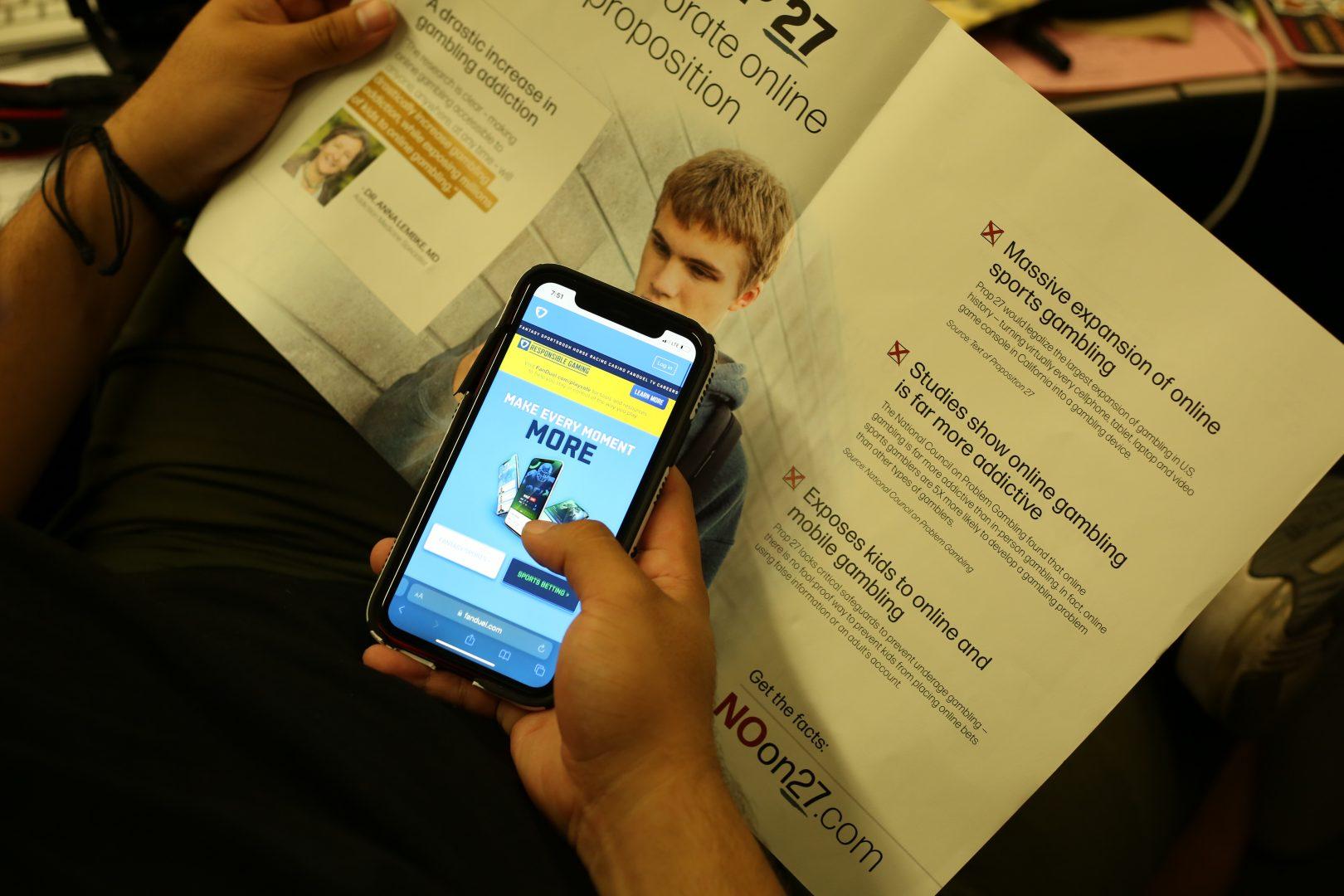In a few weeks, California voters will have the future of legal sports betting in their hands. Propositions 26 and 27 will be on the ballots concerning California’s law regarding sports gambling.
Proposition 26 would specifically legalize in-person sports betting in California at certain tribal casinos and horse racing tracks.
Only people 21 or older would be able to participate in sports betting at racetracks if the proposition is passed. Age restrictions for sports gambling at tribal casinos would need to be negotiated by each tribe and California’s governor.
The tribes won’t be taxed, but the proposition will require tribes to reimburse the state for the cost of regulating sports betting. It may change how gaming laws are enforced, enabling anyone to bring forth a lawsuit if they believe laws are being violated and the state Justice Department declines to act. The state would directly receive any penalty and settlement money from these potential lawsuits.
The proposition could generate some to tens of millions annually for the state, according to state analysts. Revenue from lawsuits could potentially be spent on education spending commitments and regulatory costs.
Arguments for and against revolve around the topics of revenue and jobs.
Arguments supporting Proposition 26 state that it will bring more businesses to tribal casinos, creating jobs and will help support tribes’ healthcare and educational services. If the proposition passes, four privately operated racetracks, 29 fairs, publicly operated racetracks and other facilities in 17 counties could offer in-person sports betting.
Arguments against it argue that the gaming laws can drive card rooms out of business. This can lead to a loss of jobs and tax revenue, impacting communities of color. If the proposition doesn’t pass, sports betting will continue to be illegal in California.
This proposition has led to one of the most expensive contributions in this year’s election, with $118 million raised in support of the propositions and over $42 million against it. The fiscal impact on the ballot predicts this proposition to reach in the tens of millions, much of it going toward enforcement of the law and regulatory costs.
Proposition 27 would specifically legalize online sports betting in the state of California, potentially creating a new era of sportsbook apps.
The proposition is also known as the California Solutions to Homelessness and Mental Health Support Act, and will allow only Native American tribes and affiliated businesses to offer online and mobile sports betting for those 21 and older.
It will also require a 10% tax on sports-wagering revenues, with 85% of that going to homelessness programs and the remaining to non-participating tribes.
Popular betting apps like FanDuel and DraftKings support the proposition, while some indigenous tribes like the San Manuel Band of Mission Indians and the Federated Indians of Graton Rancheria oppose it, spending millions in contributions.
This proposition is the most expensive on the ballot in terms of contributions, with over $169 million supporting it and $234 million opposing it.
Voting “yes” would mean Native American tribes or gambling companies could offer online sports betting on non tribal lands in California. It would also require a new state enforcement to regulate online sports betting.
Voting “no” would mean sports betting would continue to be illegal in California.
Many Fresno State students are opposed to both propositions, but City of Fresno Mayor Jerry Dyer is in support of Proposition 27.
Dyer and other mayors across the state aim to legalize and then tax sports gambling.
Dyer said the city has focused on housing and people experiencing homelessness. They have been able to do that with a surplus of money from the state, but he’s continuing to look for more sustainable funding and said online sports betting may be the solution.
“We know this is occurring underground, and it is time for us in local government to be able to take advantage of those revenues,” Dyer told ABC30. “These dollars are sorely needed so that we can address all the issues that impact homelessness.”
Dyer said the revenue could be “substantial” for interim housing. Legalizing sports betting will guarantee a funding source for years to come which allows the city to address its homeless issues, according to Dyer.
Some Fresno State students are opposed to Proposition 27, with many believing that the legalization would expose underaged children to online gambling and turn every electronic device into a potential gambling device.
Fresno State criminology student Alexxandria Bottoms emphasized how highly addictive gambling is and said the severity is much higher online than in person.
“It is stated [in] Prop. 27 that online gamblers are five times more likely to develop an addiction. This form of gambling will provide easy access and be more attractive to our youth, not to mention it lacks fundamental safeguards to prevent underage children from gambling access,” Bottoms said.
Fellow criminology student Martha Mendoza noted that the city can find another means to raise funds for homelessness rather than resorting to sports gambling.
“If we want to fund housing and services for homelessness it should be done through a different path, not through gambling revenue like Prop 27 is proposing since homelessness can result from having a gambling addiction alongside or without other factors,” Mendoza said.
Bottoms shared similar regards to finding a different solution for homlessness. California has already spent over $50 million on Fresno’s homeless issues, she said.
“If $50 million could not put a dent in helping find a solution, I surely do think this would [not] provide any help either. This would create more of a problem as people are more inclined to become bankrupt, lose savings [and] houses… from placing bets with online gambling,” Bottoms said.




